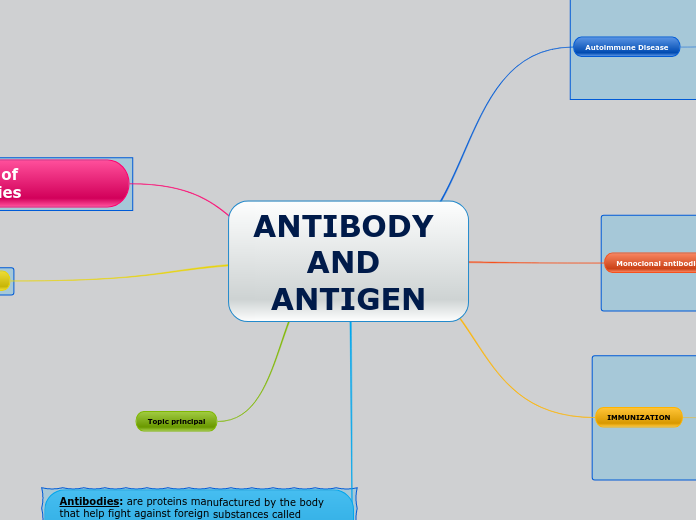ANTIBODY AND ANTIGEN
Autoimmune Disease
Autoimmune diseases occur when the body's immune system loses the ability to recognize the difference between self and nonself, that is to say, the organism produces antibodies (called autoantibodies) againts our own tissues. This can provoke the destruction of body tissue and result in a number of chronic or debilitating diseases. Between the posibles factors that provoke the autoinmune diseases are the infections by viruses and bacterias, the exposure to certain chemicals and ultraviolet light and the genetic factors
Monoclonal antibodies
When a foreign substance enters the body for the first time, the immune system makes antibodies to fight it and activates the immune memory, so the next time the same antigen enters the body the immune response will be immediate without ever feeling the symptoms of the disease or knowing that the person has been exposed to the pathogen.
IMMUNIZATION
Process of making a person immune to a disease by inoculating them
against it.
Inoculation is the introduction of an antigen into the body, (usually for injection) to stimulate the production of antibodies.
The medical practice of immunization called "vaccination".
In 1885, a rabies vaccine developed by French scientist Louis Pasteur proved to be successful. Since that time, several vaccines have been developed for many diseases.
Classes of antibodies
Subtopic
THE IMMUNE RESPONSE
Subtopic
